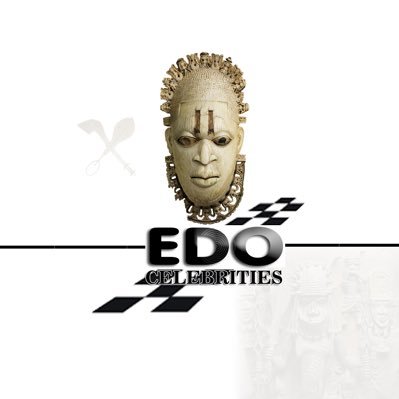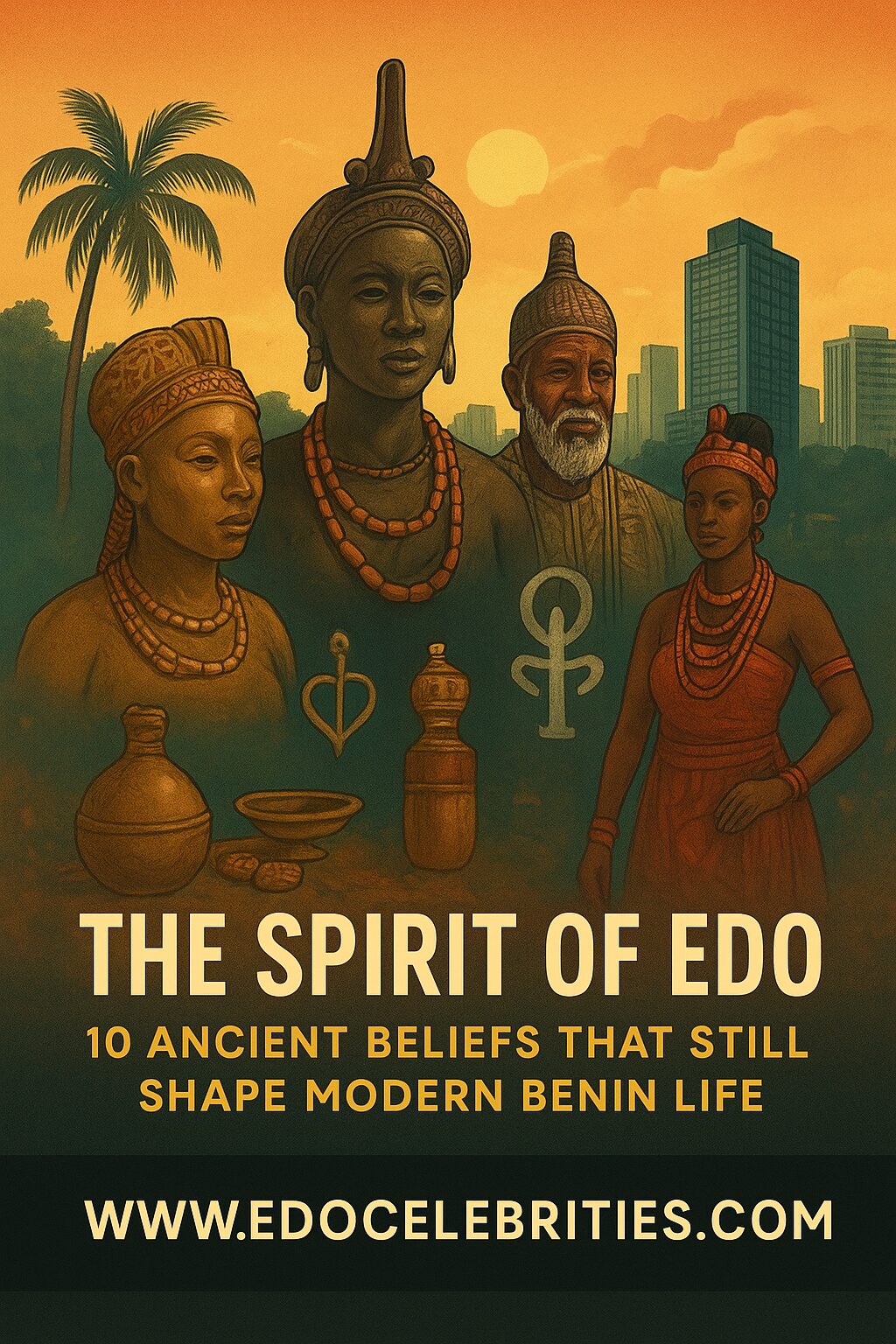Modern Benin City may be filled with skyscrapers, smartphones, and global influences, but beneath the surface beats a spirit as old as time itself — the Spirit of Edo.
For centuries, the Edo people have lived by deep-rooted spiritual beliefs, taboos, and ancestral practices that continue to influence how they marry, celebrate, and even resolve conflict today.

Here are 10 ancient Edo beliefs that still shape modern Benin life:
1. The Supreme God — Osanobua
At the heart of Edo spirituality is Osanobua, the Almighty Creator believed to rule over all life and destiny. Even today, before major events like weddings or title-taking ceremonies, elders invoke Osanobua’s name for blessing and protection — a reminder that all power flows from the divine.
2. Ancestral Reverence — The Living Dead
In Benin, ancestors are never forgotten. The Edo believe the spirits of the departed continue to guide and protect their descendants. Families still pour libations during festivals like the Igue Festival, symbolically inviting ancestors to partake in meals and family decisions.
3. Destiny and “Ehi” (Guardian Spirit)
Every individual, it’s believed, is born with an Ehi, a personal spirit double that connects one’s earthly journey to the divine. Before important ventures, many consult traditional priests to ensure their Ehi is in alignment — echoing an ancient philosophy of destiny and self-harmony.
4. Taboos and Purity
Traditional Edo society is bound by strict taboos (evbikhian), especially surrounding morality, sexuality, and respect for elders. Even today, breaking certain taboos — like eating sacred animals or desecrating shrines — is seen as inviting spiritual misfortune.
5. The Power of the Oba’s Divinity
The Oba of Benin is not just a king; he is revered as a divine representative of Osanobua on earth. His person is considered sacred, and his words carry spiritual authority. Modern Benin people still kneel or bow before the Oba, reflecting an age-old belief in divine kingship.
6. Sacred Groves and Shrines
Across Edo State, sacred groves and family shrines remain protected. These spaces — dedicated to deities like Ovia, Ogun, and Olokun — are not merely tourist attractions but living places of worship where sacrifices, thanksgiving, and community rituals continue.
7. The Role of Divination
From naming a newborn to selecting marriage dates, divination remains a crucial guide. The Ohen (traditional priest) interprets spiritual signs using cowries or kola nuts to reveal hidden truths. Even modern professionals consult diviners before major life choices, blending tradition with modern ambition.
8. Olokun — The Spirit of Wealth and the Sea
The Olokun deity, symbolizing prosperity and the deep sea, continues to command reverence among Edo women. Beaded waistbands, white attire, and water rituals are still performed in Olokun’s honor, especially by traders seeking success and fertility.
9. Festivals of Renewal — Igue and Ugie
No Edo year is complete without the Igue Festival, which purifies the land and renews spiritual strength for the Oba and his subjects. The festival blends pageantry with prayer, reminding everyone that spiritual cleansing is essential for social harmony and prosperity.
10. The Concept of “Evbo” — Community as Spiritual Family
Edo culture teaches that no one exists alone. Every village (Evbo) is spiritually connected, with mutual responsibility to care for one another. This belief still drives community projects, age-grade systems, and the strong sense of unity that defines Benin life today.
Conclusion: Ancient Spirit, Modern Soul
The Spirit of Edo is not trapped in the past — it lives on in how the people honor family, leadership, and morality. From weddings that blend traditional libations with church blessings, to businessmen who still consult ancestral shrines before big deals, the Edo continue to walk confidently between the old and the new.
Their message is timeless: to forget your roots is to lose your direction.


Leave a Reply